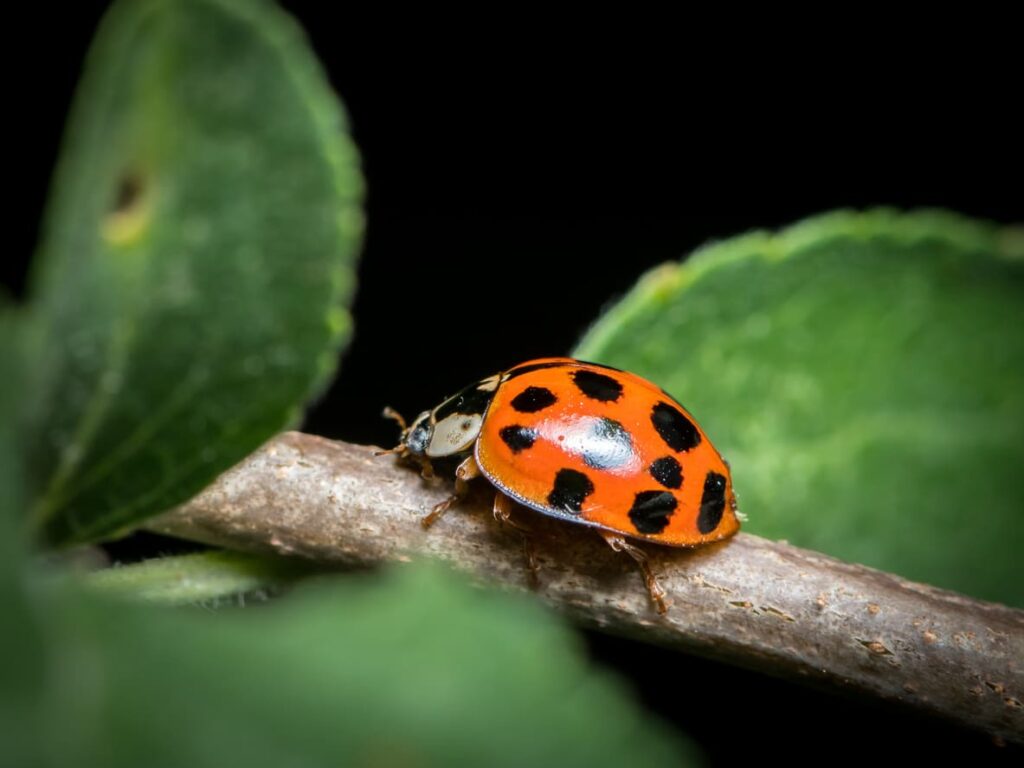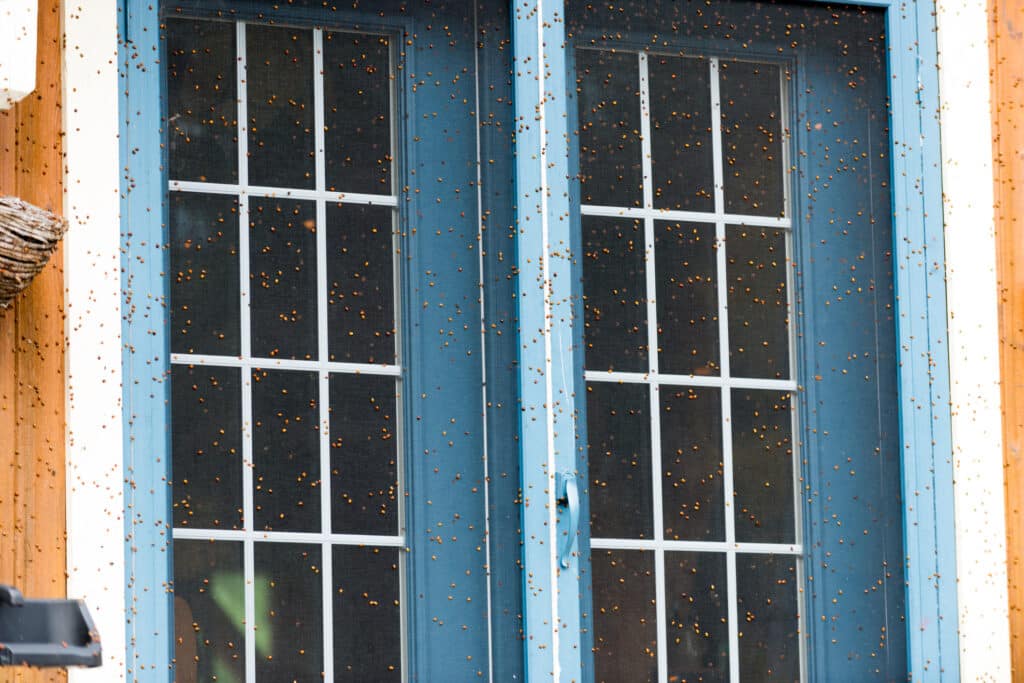
Asian Lady Beetles Identification Guide
Quick Facts About Asian Lady Beetles
Asian lady beetles are beneficial insects that prey on crop pests but can become a nuisance when they invade homes in large numbers during fall months. They’re distinguishable by their oval shape and distinctive markings.- Size: Approximately 1/4-inch long
- Color: Tan, orange, or red wing covers
- Shape: Oval
- Active Season: Spring through fall, with indoor invasions occurring in fall
- Lifespan: Up to 2-3 years
- Reproduction Rate: Female beetles can lay hundreds of eggs in their lifetime

What Do Asian Lady Beetles Look Like?
Asian lady beetles are easily recognizable insects with their distinctive oval shape and colorful appearance. Adults feature tan, orange, or red wing covers that may display several black spots, though some individuals might have indistinct spots or none at all. A key identifying characteristic is the small, dark “W” or “M” marking on the whitish area behind their head, which distinguishes them from native ladybug species. These beetles tend to gather around brightly colored surfaces and windows, especially during fall months when seeking shelter.Key Identifying Features
- “W” or “M” marking: A distinctive dark marking on the whitish area behind the head, resembling either a “W” or “M”
- Variable spot patterns: Wing covers may display several black spots, though some might have indistinct spots or none at all
- Congregating behavior: Tend to gather in large groups around windows and light-colored surfaces, especially in fall
- Secretions: When disturbed, they release a yellowish fluid that can stain surfaces and emit a noxious odor
Related Species
Native ladybugs (Coccinellidae family) can be confused with Asian lady beetles but generally don’t invade homes in large numbers. While Asian lady beetles feature the distinctive “W” or “M” marking behind their head, native species typically don’t have this characteristic. Additionally, native ladybugs are less likely to bite humans or release defensive secretions that stain surfaces and emit unpleasant odors.
Health & Property Risks
Health Concerns
Asian lady beetles can cause various health concerns, particularly for sensitive individuals when they enter homes in large numbers during fall invasions.
- Allergic reactions: Their secretions and body parts can trigger allergic responses in sensitive individuals
- Respiratory issues: The odorous secretions may worsen asthma symptoms or cause respiratory irritation
- Minor bites: Though not aggressive, they can “pinch” human skin when they land on people, causing mild discomfort
Property Damage

While not structurally damaging, Asian lady beetles can create several nuisance issues when invading Tennessee homes.
- Staining damage: The yellowish defensive fluid they release can stain walls, furniture, and curtains
- Odor problems: Large infestations can produce a distinct unpleasant smell throughout affected areas
- Contamination concerns: Their presence in large numbers can contaminate food preparation areas and living spaces
Where to Look for Asian Lady Beetles in Your Home
Asian lady beetles typically enter homes through cracks around windows, doors, siding, utility pipes, and under eaves. During fall months, inspect sunny, exterior walls where they tend to gather before moving indoors, and check window frames, attic spaces, and wall voids where they commonly hibernate.When to Call Professional Help
Professional pest control is recommended when you notice large numbers of Asian lady beetles gathering on exterior walls or already finding their way inside your home, particularly in early fall. If you’ve tried sealing entry points but continue to see significant numbers indoors, or if you’re experiencing allergic reactions to their presence, it’s time to call experts. Prevention is key, as once these beetles have established indoor hibernation sites, they can be difficult to control without professional assistance.

